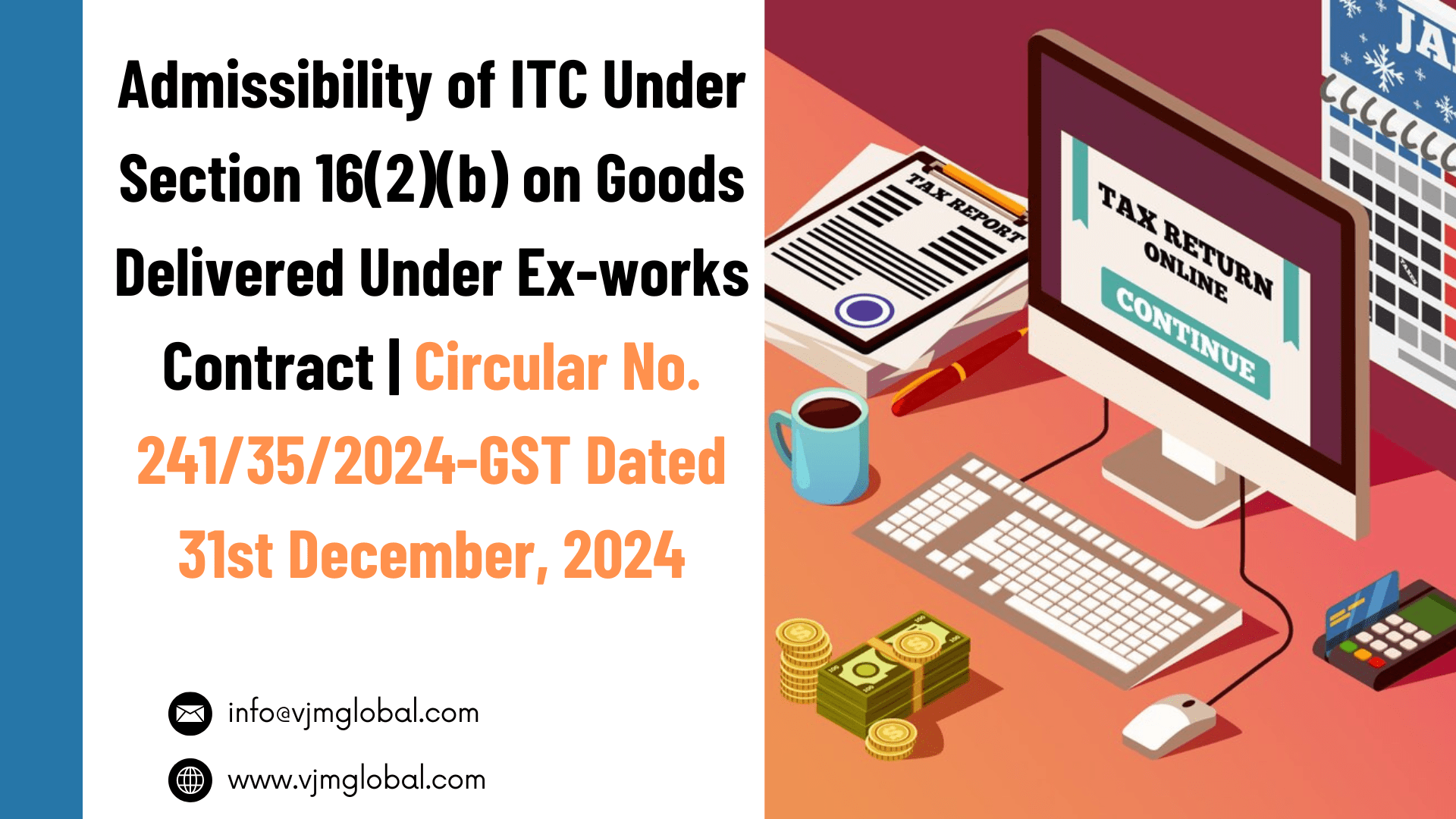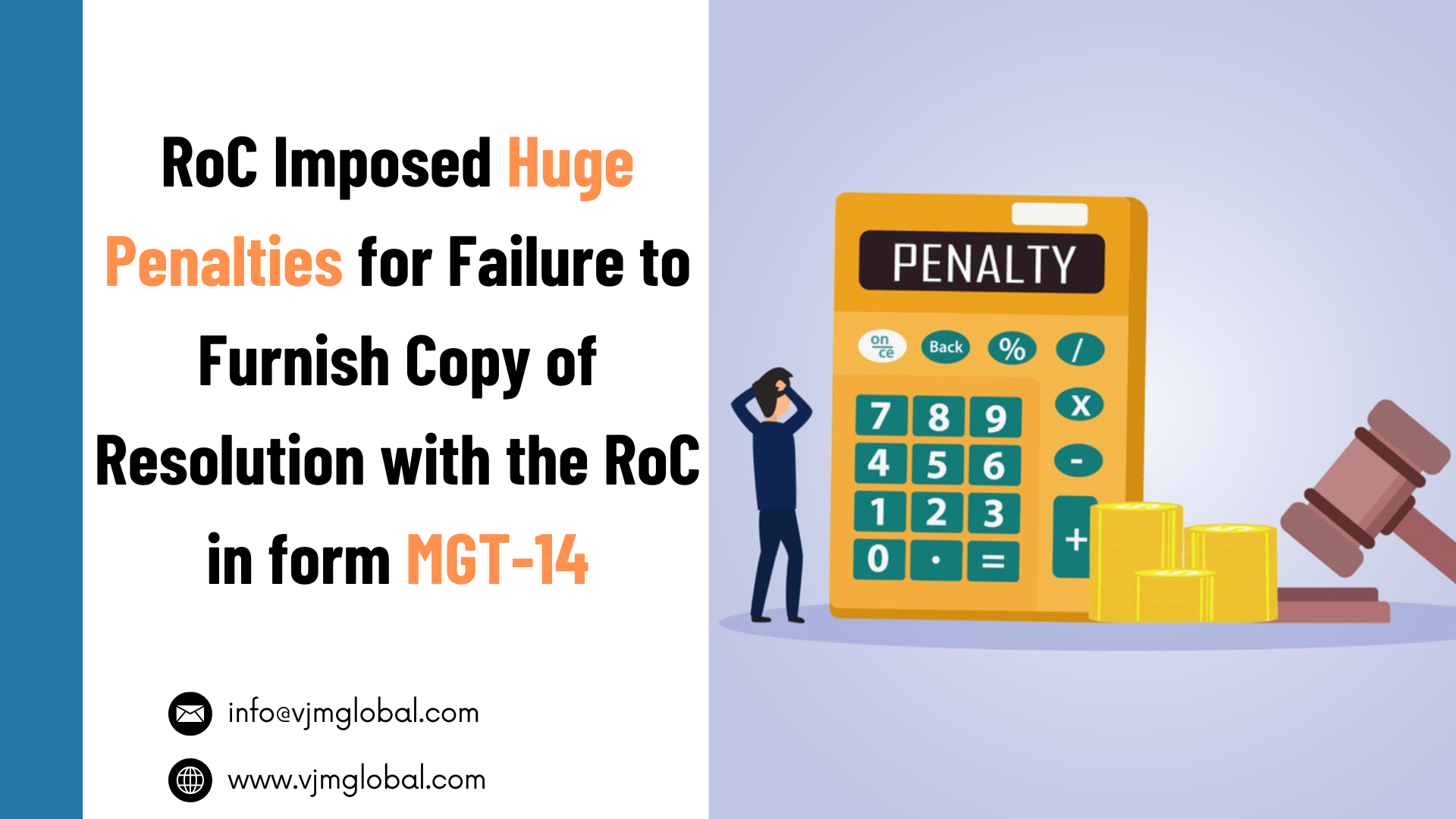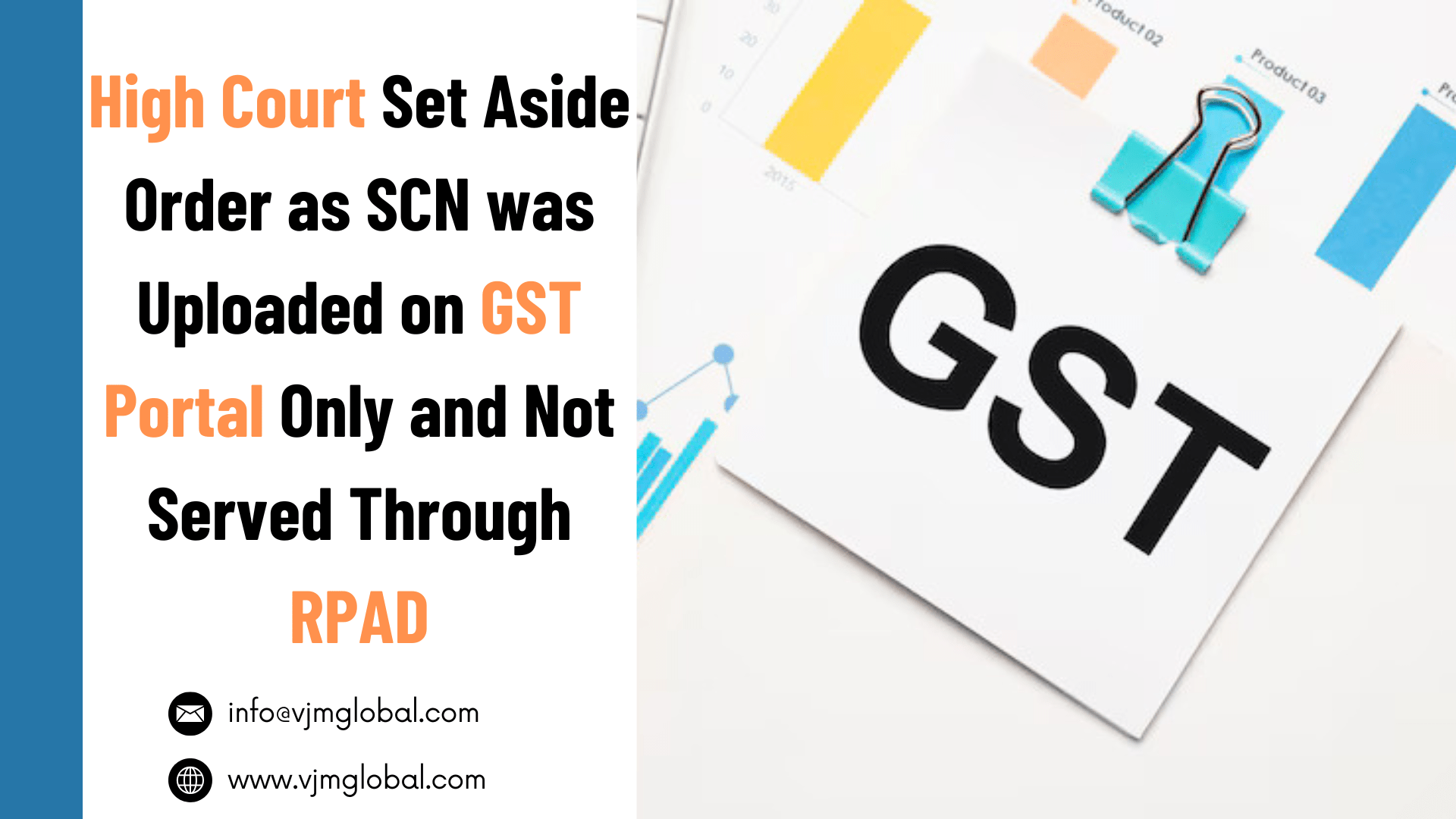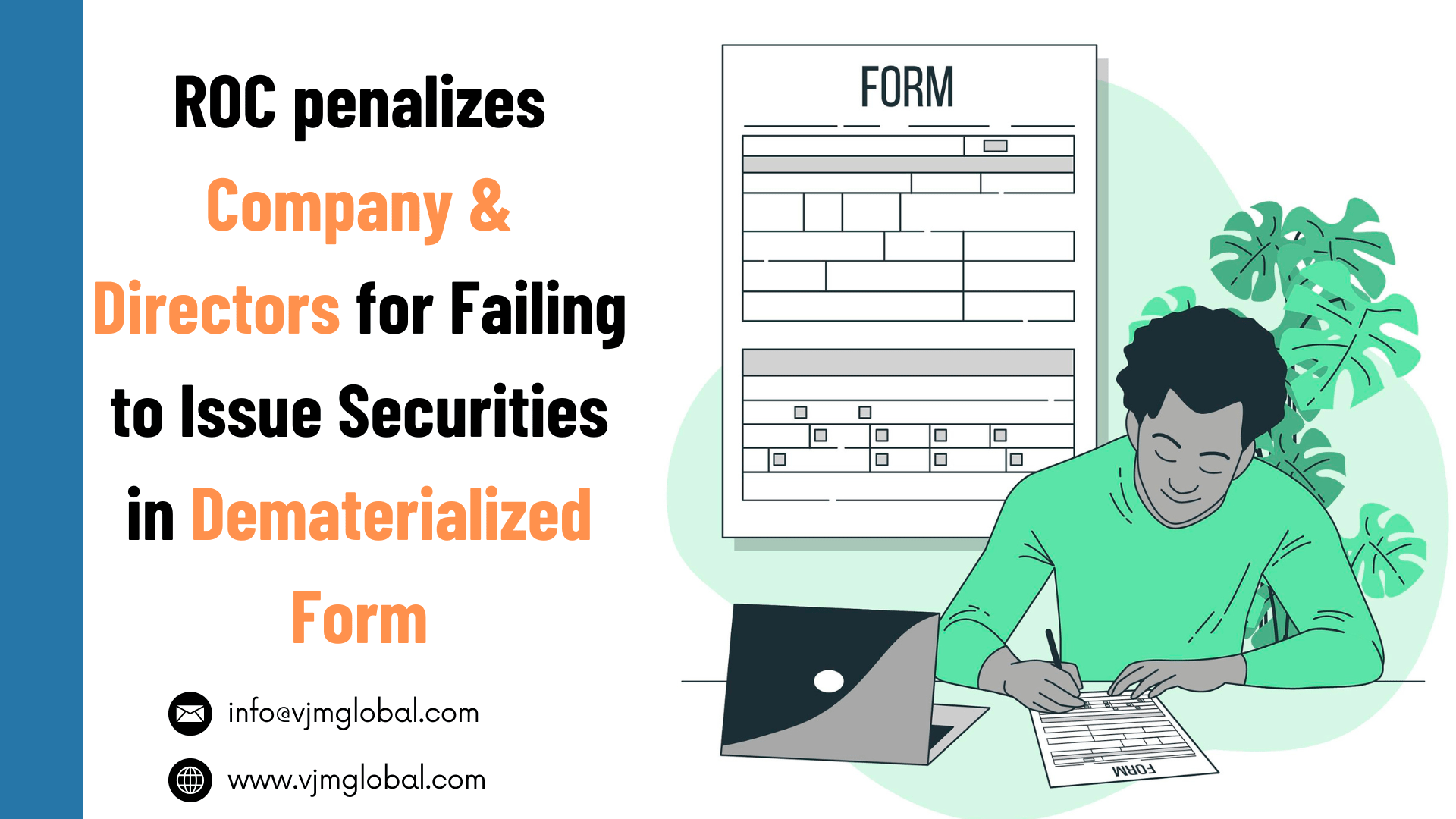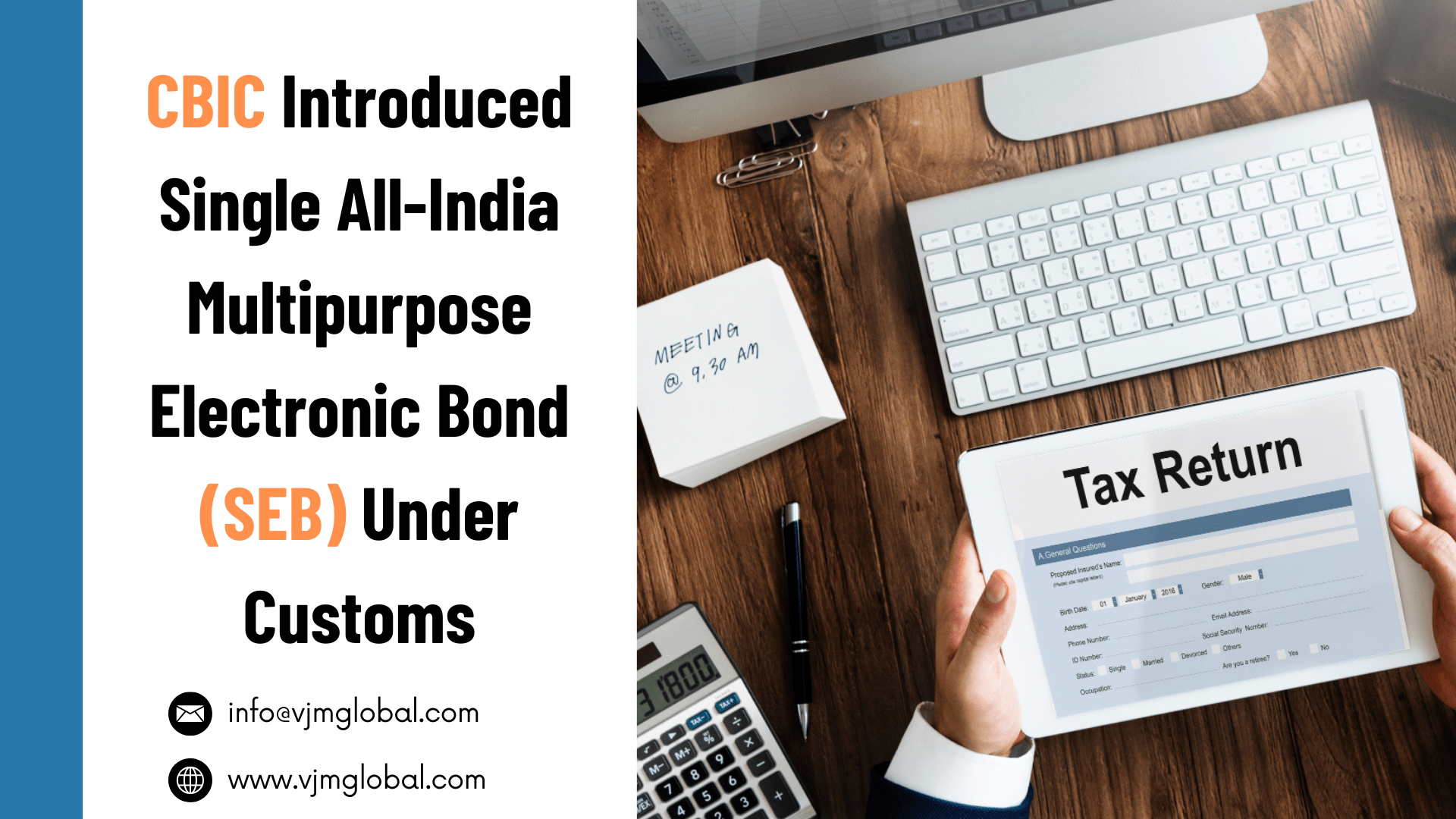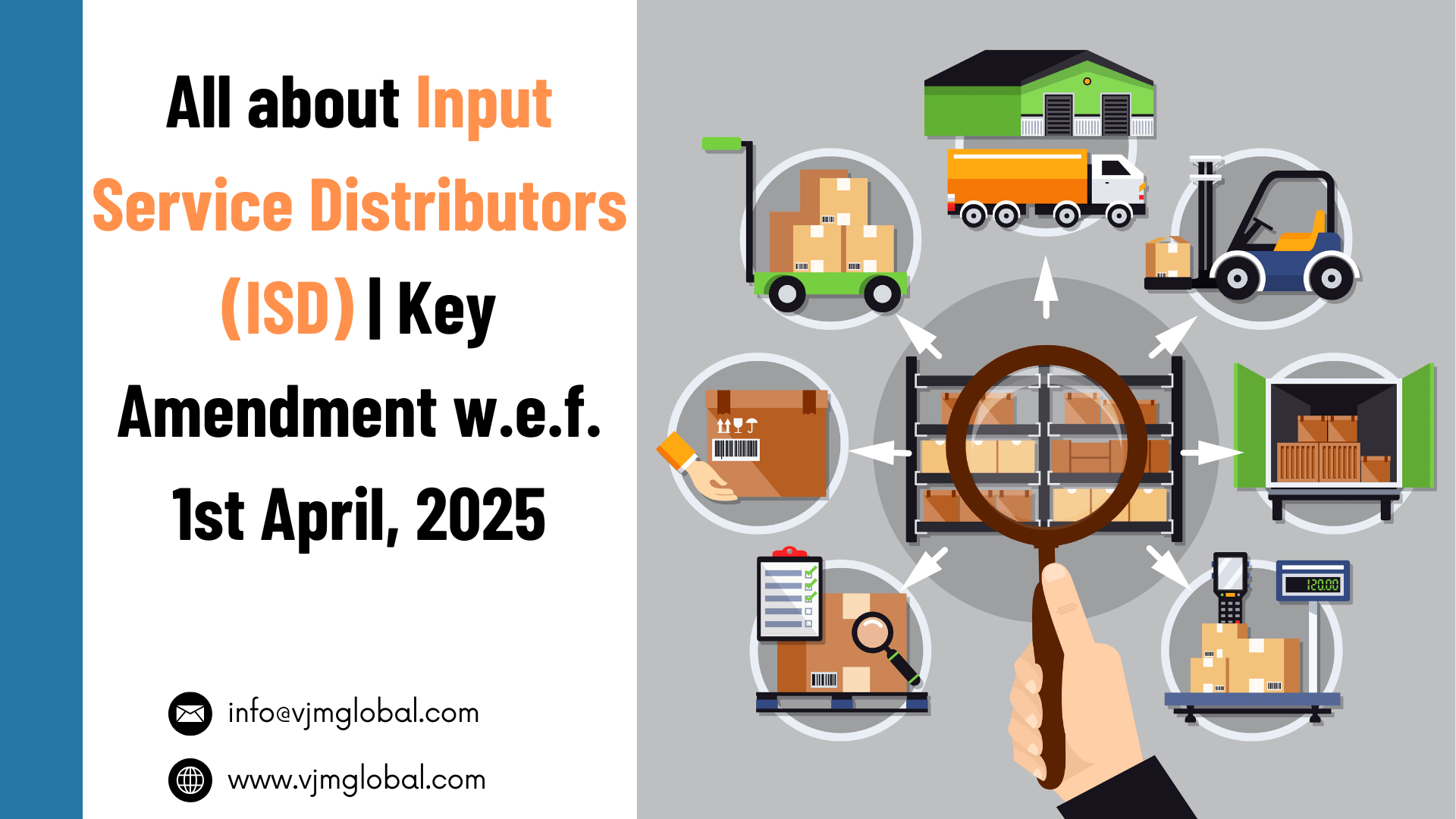GST Council received various representations from the automobile industries that show cause notice is received from the GST officer disallowing ITC with respect to goods which are delivered by the OEM at its factory gate to the dealer. As per the representation, GST officers are taking a view that ITC can be availed by the dealer only after the goods are physically received by him at his business premises. Accordingly, ITC is wrongly availed in contravention of provisions of Section 16(2)(b) of CGST Act.
As per recommendation of the GST Council in the 55th GST Council meeting, the CBIC has issued the following detailed clarification about admissibility of ITC under Section 16(2)(b) of CGST Act in respect of the goods which are delivered by the supplier at his ,i.e., supplier’s place of business, under ex-works contract vide circular No. 241/35/2024-GST dated 31st December, 2024.
1. Issue under Consideration:
- CBIC received representation from the automobile sectors seeking clarification on availability of input tax credit (“ITC”) under Section 16(2)(b) of CGST Act, 2017 in respect of goods which have been delivered by the supplier at his place of business under Ex-Works Contract.
- In the automobile sector, automobile dealers and Original Equipment Manufacturers (OEMs) generally enter into an Ex-Works (EXW) contract, in which the property in goods (e.g., vehicles) passes to the dealer at the OEM’s factory gate.
- The delivery of the goods is completed at the OEM’s factory gate when the goods are handed over to the transporter. The OEM may arrange transport and insurance in transit on behalf of the dealer. The dealer shall lodge any claim for any loss during transit.
- The dealers account for such invoices in his books of accounts on the date of delivery at the factory gate of the OEM.
- The dealer avails the ITC on the date the vehicles are billed to him and handed over to the transporter by the OEM at his factory gate.
- However, some field formations are taking a view that ITC can be availed by the dealer only after the vehicles are physically received by him at his business premises and show cause notices have been issued to a number of dealers, demanding tax for wrongful availment of ITC for contravention of provisions of Section 16(2)(b) of CGST Act.
2. Relevant Legal Extract
The ITC is disallowed in pursuance of following provisions of GST Law:
“Section 16. Eligibility and conditions for taking input tax credit.
…
(2) Notwithstanding anything contained in this section, no registered person shall be
entitled to the credit of any input tax in respect of any supply of goods or services or
both to him unless, –
…
(b) he has received the goods or services or both.
Explanation.- For the purposes of this clause, it shall be deemed that the registered person has received the goods or, as the case may be, services-
(i) where the goods are delivered by the supplier to a recipient or any other person on the direction of such registered person, whether acting as an agent or otherwise, before or during movement of goods, either by way of transfer of documents of title to goods or otherwise;
(ii) where the services are provided by the supplier to any person on the direction of and on account of such registered person;
…”
3. Clarification Issued
Considering the recommendation of GST Council in 55th GST Council meeting, the CBIC has issued following clarification vide Circular No. 241/35/2024-GST dated 31st December, 2024:
3.1 Condition of physical receipt of goods under Section 16(2)(b) of CGST Act
- Section 16(2) of CGST Act is a non-obstante clause which enlists the conditions, failing which the registered person shall not be entitled to claim the ITC. One of the conditions as per clause (b) is that a registered person is not entitled to claim ITC in respect of any supply of goods or services or both unless he has “received” such goods or services or both.
- Explanation to Section 16(2)(b) provides the scenario where goods shall be deemed as received.
- As per Section 16(2)(b), there is no reference of any particular place where goods are required to be “received” by the registered person. This is contrary to the erstwhile Central Excise regime, where the goods were required to be physically received at the factory of the manufacturer for taking ITC. However, State VAT Acts did not explicit mention physical receipt of goods at any particular place for claiming ITC.
3.2 Cases where goods are deemed to have been received by registered person
- As per Explanation to Section 16(2)(b) of CGST Act, the goods shall be deemed to be received by the registered person where:
- the goods are delivered by the supplier to a recipient or to any other person on the direction of such registered person, whether acting as an agent or otherwise;
- such direction may be given before or during movement of goods; and
- the goods may be delivered either by way of transfer of documents of title to goods or otherwise.
- Therefore, as per the explanation, where the goods are delivered by the supplier to any other person upon the direction of the registered person then the registered person shall be deemed to have “received” such goods for the purpose of Section 16(2)(b) of CGST Act.
3.3 Receipt of goods in case of EXW Contract
- In the instant case, as per the EXW contract between the dealer and the OEM:
- the goods are handed over by the OEM to the transporter at his factory gate for onward transmission to the dealer;
- transport is arranged by OEM on the behalf of dealer; and
- If insurance is arranged, it is done on the behalf of dealer and any claim in case of loss has to be lodged by the dealer.
- Therefore, the property in such goods can be considered to have been passed on to the dealer upon handing over of the such goods to the transporter at his factory gate. Therefore, such goods shall be considered to have been delivered to the dealer at the factory gate of the supplier even though the goods may be physically received by the dealer after the transit period.
- Accordingly, CBIC has clarified that as per explanation to Section 16(2)(b) of CGST Act, the dealer can be considered to have “received” such goods at the time of handing over of such goods by the supplier to the transporter at his factory gate.
- The same principle is applicable in respect of supply of goods under EXW contract where as per the terms of the contract, the goods are to be delivered by the supplier to the recipient or to any other person (including a transporter) on behalf of the recipient, at supplier’s place of business and the property in the goods stands transferred to the recipient at the time of such handing over.
- In such cases, such goods shall be construed to have been “received” by the said recipient at the time of handing over of such goods to the recipient or to the transporter, as the case may be.
3.4 Goods should be used for the purpose of and furtherance of business
- CBIC has clarified that as per Section 16(1) of CGST Act, a registered person shall be entitled to take ITC in respect of supply of goods or services, which is used or intended to be used in the course or furtherance of business.
- Therefore, ITC may be available to the registered person on such receipt of goods at the factory gate of the supplier subject to fulfilment of other conditions of section 16 and section 17 of CGST Act including the condition that the said goods are used or intended to be used in the course or furtherance of business by the said registered person.
- If such goods are found to be used for non-business purposes at any stage, i.e., before physical receipt or goods or subsequently, the registered person shall not be entitled to ITC in respect of such goods under section 16(1) of CGST Act.

